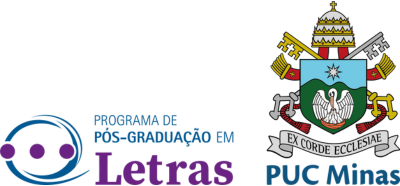Collections in Atonement, Oranges Are Not the Only Fruit, Bring up the bodies, and Cloud Atlas: A Prelude
DOI:
https://doi.org/10.5752/P.2358-3428.2020v24n52p502-527Palavras-chave:
Coleção. McEwan. Jeanette Winterson. Mantel. MitchellResumo
Lerei o fascínio por colecionadores e coleções em Atonement de Ian McEwan (2001), Oranges Are Not the Only Fruit de Jeanette Winterson (1985), Bring up the Bodies de Hilary Mantel (2012) e Cloud Atlas de David Mitchell (2004) em relação a pelo menos duas questões teóricas. As coisas e objetos coletados podem ajudar na imaginação de identidades e papéis sociais mais satisfatórios? A coleta de vestígios materiais pode levar a uma descrição precisa ou verdadeira do passado-presente-futuro na escrita de uma vida? Esses romances representam um dos exemplos mais populares e aclamados pela crítica do interesse generalizado pela coleção aparente na ficção britânica contemporânea.
Downloads
Referências
ARMSTRONG, Nancy. The Future in and of the Novel. A Forum on Fiction, Vol. 44, No. 1 (SPRING 2011), pp. 8-10.
AVILA, Theresa. Teresa of Avila: The Book of My Life. New York: New Seeds, 2008.
BAUDRILLARD, Jean. The system of objects. Trad. James Benedict. London: Verso, 1996.
BENJAMIN, Walter. The Cambridge Introduction to Walter Benjamin, Cambridge: Cambridge University Press, 2008)
BIJON, Béatrice. Voices under Water: Jeanette Winterson's Oranges Are Not the Only Fruit. Études Anglaises 2008/3 (Vol. 61), pp 320 – 329.
BORDO, Susan. When Fictionalized Facts Matter. The Chronicle of Higher Education. Washington (May 6, 2012): n/a.
D'ANGELO, Kathleen. To make a novel: The construction of a critical readership in Ian McEwan’s Atonement. Studies in the Novel, Vol. 41, No. 1 (spring 2009), pp. 88-105.
DERRIDA, Jacques. Memoirs of the Blind: The Self-Portrait and Other Ruins. Chicago: University of Chicago Press, 1993.
D'HOKER, Elke. Confession and Atonement in Contemporary Fiction: J. M. Coetzee, John Banville, and Ian McEwan. Critique: Studies in Contemporary Fiction, 48:1, 31-43, 2006.
EAGLETON, Terry. A beautiful and elusive tale. The Lancet, v. 358, December 22/29, 2001, p. 3.
Eve, M. P. “You Have to Keep Track of Your Changes”: The Version Variants and Publishing History of David Mitchell’s Cloud Atlas. Open Library of Humanities, 2(2): e1, pp. 1–34, 2016.
FOUCAULT, Michel. The Order of Things. New York: Vintage Books, 1994.
FRASER, Ian, Class Experience in McEwan's Atonement. Critique: Studies in Contemporary Fiction, 54:4, 465-477, 2013.
IONESCU, Andrei. A Manifesto Against Failures of Understanding: Ian McEwan’s Atonement. Critique: Studies in Contemporary Fiction, 58:5, 600-618.
HABIG, Marion A. O.F.M. The Works of St. Bernardine, Franciscan Studies, v. 4, n. 3, September 1944, pp. 229-246
HORTLE, Luke. Mitchell’s Cloud Atlas and the Queer Posthuman. Literature Interpretation Theory, 27:4, 253-274, 2016.
LACROIX, Alison L., MCADAMS, Richard H., and NUSSBAAUM, Martha C. Fatal Fictions: Crime and Investigation in Law and Literature. Oxford: Oxford Scholarship Online, 2016.
MANTEL, Hilary. Bring up the Bodies. New Yok: Picador, 2012
MARGARONIS, Maria. The Anxiety of Authenticity: Writing Historical Fiction at the End of the Twentieth Century. History Workshop Journal, No. 65 (Spring, 2008), pp. 138-160.
MATHEWS, Peter. The Impression of a Deeper Darkness: Ian McEwan’s Atonement. ESC 32.1 (March 2006): 147-160.
MCEWAN, Ian. Atonement. London: Vintage Books, 2001.
MEZEY, Jason Howard. A Multitude of drops: recursion and globalization in David Mitchell’s Cloud Atlas. Modern Language Studies, Vol. 40, No. 2 (WINTER 2011), pp. 10-37.
MALRAUX, André. O museu imaginário. Trad. Isabel Saint-Aubyn. Lisboa: Edições 70, 2011.
MAURIÈS Patrick. Cabinets of Curiosities. London: Thames & Hudson, 2002.
MITCHELL, David. Cloud Atlas. London: Hodder and Stroughton, 2004.
O'HARA, David K. Briony's Being-For: Metafictional Narrative Ethics in Ian McEwan's Atonement. Critique: Studies in Contemporary Fiction, 52:1, 74-100, 2011.
PICK, David. Rethinking organization theory: The fold, the rhizome and the seam between organization and the literary. Organization, 2017, Vol. 24(6) 800–818.
VON OORT, Richard. The Critic as Ethnographer. New Literary History, n. 35, 2005, p. 651.
SHAW, Kristian. Building Cosmopolitan Futures: Global Fragility in the Fiction of David Mitchell. English Academy Review, 32:1, 109-123, 2015.
SU, John J. Fantasies of (Re)Collection: Collecting and Imagination in A. S. Byatt's "Possession: A Romance". Contemporary Literature, Vol. 45, No. 4 (Winter, 2004), pp. 684-712
SPIRIDON, Monica. The (meta)narrative paratext: coda as a cunning fictional device. Neohelicon (2010) 37:53–62.
SWANN, Marjorie. Curiosities and Texts: The Culture of Collecting in Early Modern England. University of Pennsylvania Press, 2001.
WALLACE, Diana. The Woman's Historical Novel: British Women Writers, 1900-2000. New York: Palgrave Macmillan Limited, 2004.
WINTERSON, Jeanette. Oranges are the Only Fruit. London Heinemen, 1985.
WITTGENSTEIN, Ludwig. Tractatus Logico-Philosophicus. London: Kegan Paul, 1922.
Downloads
Publicado
Como Citar
Edição
Seção
Licença
O envio de qualquer colaboração implica, automaticamente, a cessão integral dos direitos autorais à PUC Minas. Solicita-se aos autores assegurarem:
- a inexistência de conflito de interesses (relações entre autores, empresas/instituições ou indivíduos com interesse no tema abordado pelo artigo), e
- órgãos ou instituições financiadoras da pesquisa que deu origem ao artigo.
- todos os trabalhos submetidos estarão automaticamente inscritos sob uma licença creative commons do tipo "by-nc-nd/4.0".


 Português
Português English
English Español
Español
 Italiano
Italiano






